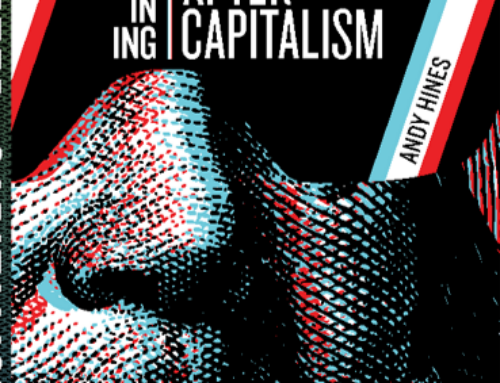A post from UH Futures’ graduate Jason Swanson on The European Futures Observatory blog:
Occupy Wall Street may best be described as a meta-protest. The Occupy Movement, which spread from Wall Street to Occupy movements throughout the world all shared a common theme. People from different walks of life have come together to voice their displeasure at a wide range of things: bank bailouts, student loan debt, lack of healthcare, to name a few. The list is as diverse as the people involved in the Occupy movements. However, at the heart of it all, the Occupiers’ main critique is a protest against the rise of economic inequality, with much of their ire focused on the big banks, or “banksters” according to many in the Occupy movement. This is personified in their signature “we are the 99%”.
The banks have come to represent a system that has potentially failed. Bankers were given huge incentives to create complex financial products and extend cheap lines of credit, in many cases to people who normally would not qualify for loans. The bankers were making vast sums as of money when things were going well, but when things began to unravel, these very same banks – who were engaged in a high risk / high reward game – suddenly became “too big too fail” and had to be bailed out with public funds. This incited the Occupiers’ sense of unfairness. Looking into the future, does the failure and bailout of the banks represent a turning point? Has Western style capitalism failed? If so, do the Occupiers give us any signals of what may replace it?
While the Occupy movement’s critique is accurate, they fall short in terms of any substantive solutions. The Occupiers have made a good start, but have seemingly reached the natural limits to where they could go. A solution for this could be that the Occupy movement widens its scope to help with constructing an alternative form of banking, one that can address the issues of economic equality. By joining with other groups, the Occupiers can move from being a loud voice that is too vague, to become a group working with the banks against which they protest. The purpose of this would be to create a banking system in the future that is socially useful for everyone. A banking system that contains regulatory and operational reforms, as well as dealing with the issues of equity that form the basis of the Occupy Movement. To devise a system of solidarity and reciprocity that meets the needs of our communities, not a system that divides the world into the ultra wealthy 1% and the other 99%.
Were the Occupiers right? They were. In highlighting the rise of inequality they helped to bring into light and popularize the problems of the global financial system. In coming up short in terms of solutions, the Occupiers may have reached their limits, and it may be necessary for them to reach out to other groups in order to craft a new financial system in the future, one that serves everyone, and not just the 1%.





